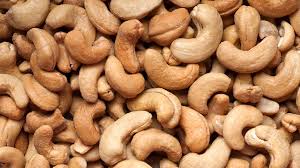
Cashew truly deserves more support
When President Nana Addo Dankwa Akufo-Addo launched the Tree Crops Development Authority (TCDA) in September 2020, the objective was to diversify the tree crop sector to free the over-dependency on cocoa as the sole cash crop for the country.
Advertisement
One of the tree crops which stands out as having great potential is cashew which thrives very well in eight out of the 16 regions in the country, as compared to cocoa, even though with its restrictive thriving areas, is our major cash crop.
It has, therefore, come as glad tidings that the government is committed to investing $60 million in the cashew sector, including processing, as announced by the Chief Executive of the TCDA, William Agyapong Quaittoo.
Although late in coming, this amount, a component of a $100 million World Bank facility for the tree crop sector, the Daily Graphic believes, has come in handy.
We are happy that a chunk of that amount, representing 70 per cent of the $60 million, will be invested in building factories in the cashew catchment areas.
It is expected that the TCDA has already identified areas where the crop is produced, and the feasibility study being done should not take any longer for the factories to be sited.
Value addition of the crop is crucial if the country intends to benefit from it. Sadly, most of the crops and minerals that the country produces are exported in their raw state, denying the country additional revenue through value addition.
The Daily Graphic finds it unacceptable that with the current production level of 230,000 metric tonnes, only 10 per cent of the crop is processed locally.
With the establishment of the factories, which will be located within the production catchment areas, even if the crop is not processed to the final stage, a semi-processed level will attract more cash than in its entire raw state.
What needs to be intensified is the sensitisation of farmers to the benefit of selling their cashew in the processed form instead of the current raw state where they do not benefit as much as they should.
The production of the crop can easily outstrip that of the long-held national cash crop — cocoa — because of the favourable weather condition. Aside from its resilience to the weather, cashew starts fruiting earlier than cocoa and this is attracting many farmers into its cultivation and the TCDA should take advantage to attract more farmers into it.
It is heart-warming to learn that cashew production in the country has increased by about 30,000 metric tonnes per year since 2020. This is a positive sign for the sector's growth.
The TCDA, through the government and other partners, has embarked on the distribution of millions of free cashew crop seedlings to farmers in recent years, which by all accounts is yielding good results. We think this is a good move and once the farmers know that they do not have to pay for seedlings, they will willingly take to the farming of the crop.
The Daily Graphic believes that while efforts are being made to woo farmers to venture into cashew production, the government, through the TCDA, should also step-up measures to deal with challenges in the sector.
Currently, the farmers are faced with yield, diseases, pest infestation, climate change effect, the infiltration of foreign exporters to buy wet cashew nuts, among others for which our research scientists in the area need to up their game.
Thankfully, last week, Ghana hosted the 6th Consultative International Cashew Council conference which brought together a significant number of high-level government representatives from member countries, as well as research scientists to deliberate and adopt mechanisms to make Africa dominate the cashew sector in the global market.
The Daily Graphic expects that Ghanaian scientists have learnt something new at the conference to replicate it for the benefit of our cashew farmers.
We need more research work on cashew to ensure that the challenges in the sector do not demoralise them.
Additionally, the government also needs to give the farmers a good price to entice them to increase production for the general good of the country.



